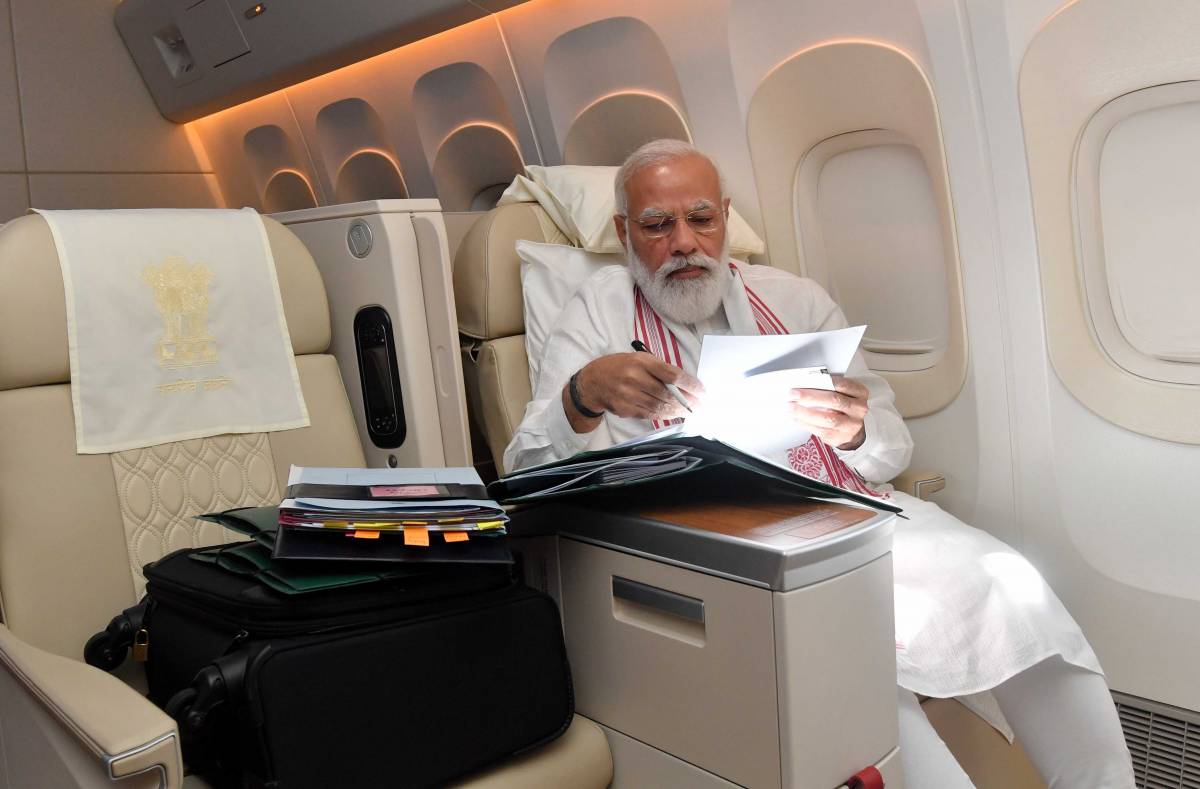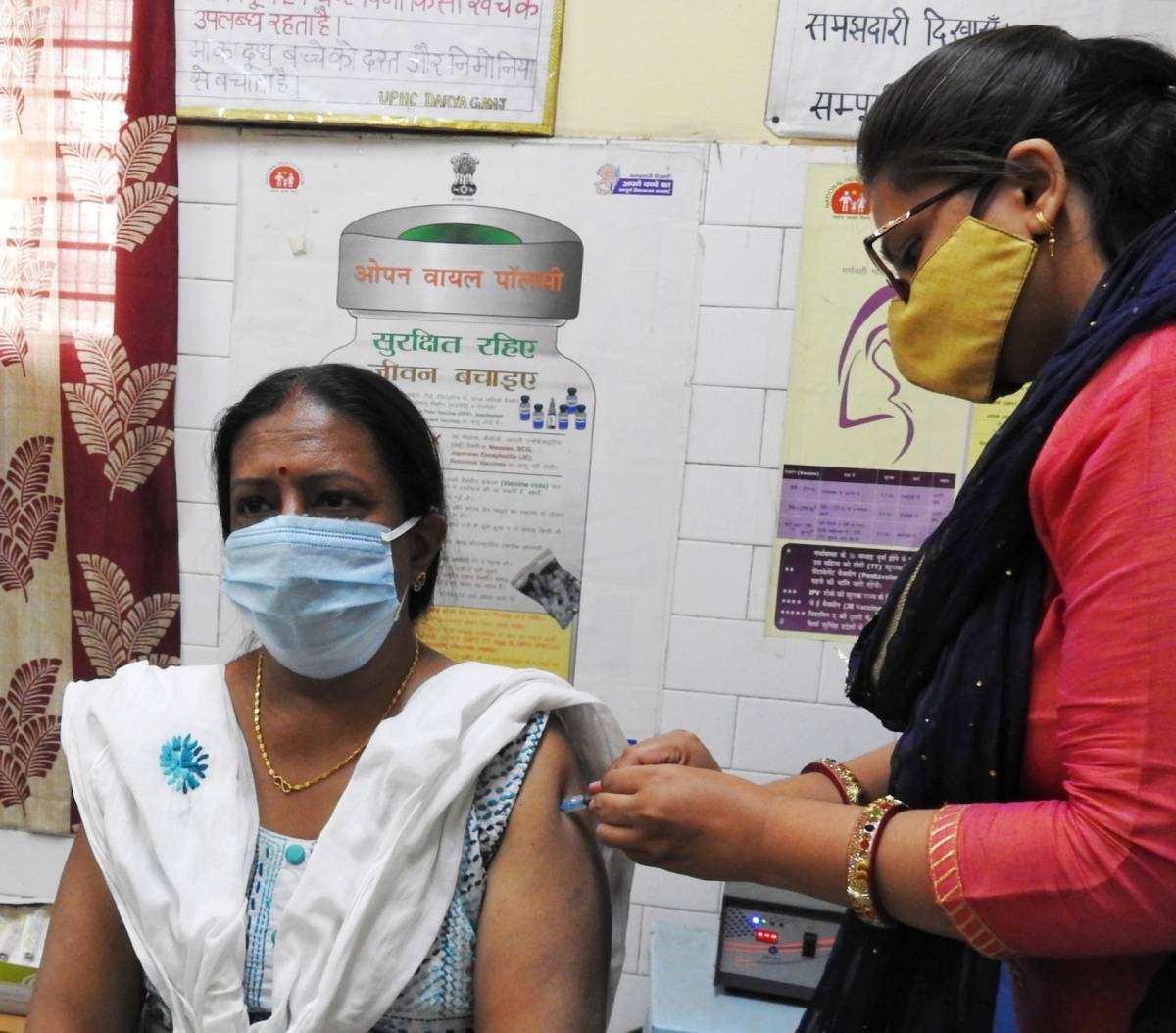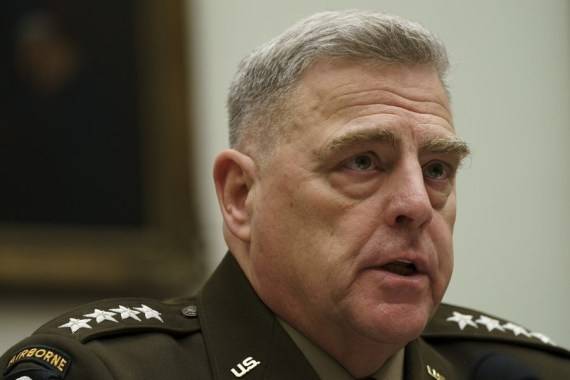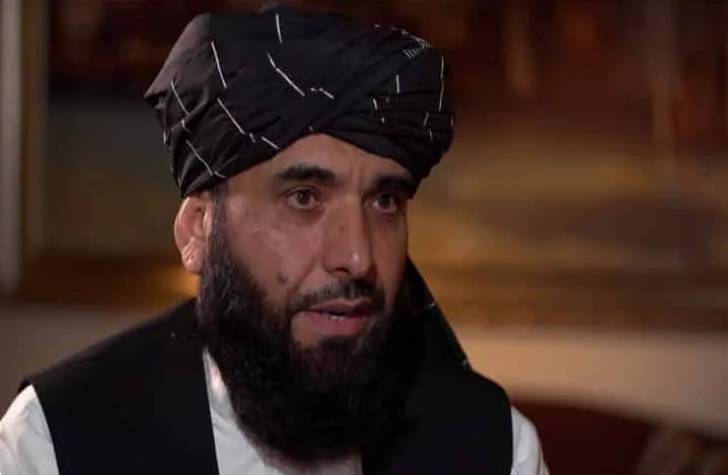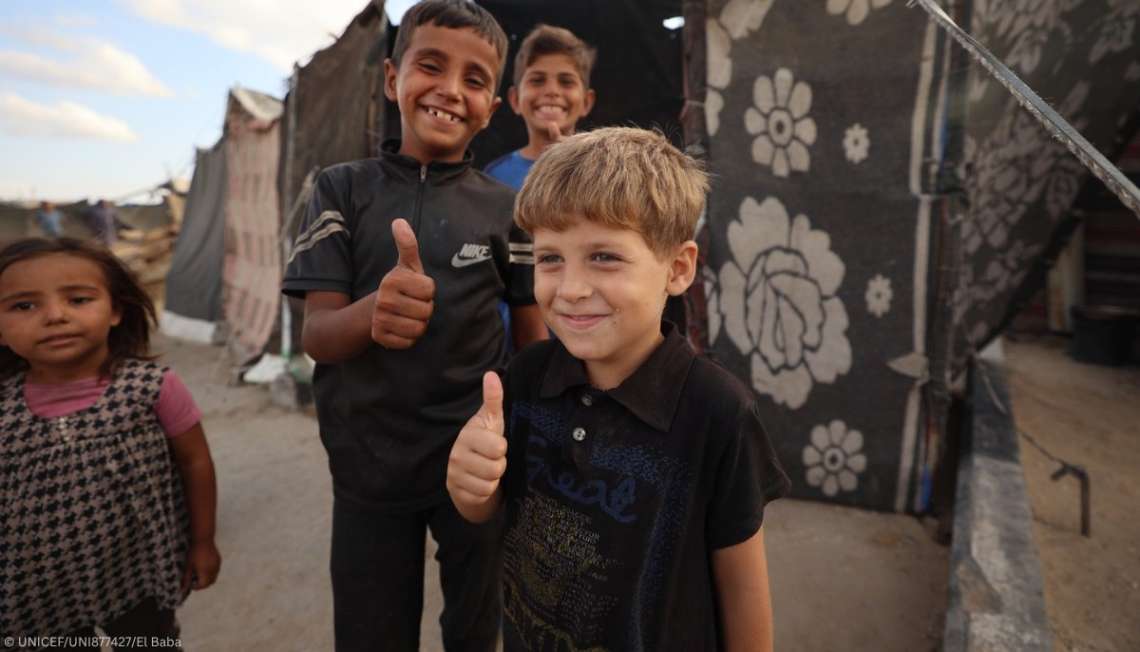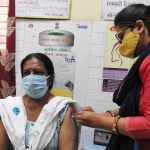Modi says India is ramping up production capacity of existing vaccines and the supply chains of raw materials must be kept open so that vaccine supplies to other countries can be resumed, reports Asian Lite News
Prime Minister Narendra Modi said on Wednesday that international travel should be made easier through mutual recognition of vaccine certificates, amid several countries adopting different sets of rules to allow foreigners to enter their territory in the wake of the Covid-19 pandemic.
In his video remarks at the Global Covid Summit hosted by US President Joe Biden, Modi also said India is ramping up production capacity of existing vaccines and the supply chains of raw materials must be kept open so that vaccine supplies to other countries can be resumed.
“We also need to focus on addressing the pandemic’s economic effects. To that end, international travel should be made easier, through mutual recognition of vaccine certificates,” Modi said.
His remarks come on a day when the UK government issued an updated international travel advisory to include AstraZeneca Covishield among the eligible Covid-19 vaccine formulations but kept India out of the 18 countries on an approved vaccinations list, requiring Indians to follow rules set out for “non-vaccinated” travellers.
Despite the inclusion of Covishield, Indian travellers are not exempt from the quarantine rules under the UK’s new international travel norms that will come into force from October 4.
On Monday, the US had announced a new international travel system under which fully vaccinated individuals would be allowed to enter the country beginning early November.
Former US president Donald Trump had imposed a blanket ban on foreign travellers from entering the US at the start of the coronavirus pandemic in early 2020. The new system adopted by the Biden administration essentially lifts the travel ban on countries like India that the US had earlier enforced.
Indian envoy shares six ‘broad elements’ of PM’s visit
Indian ambassador Taranjit S Sandhu on Wednesday highlighted six “broad elements” of Prime Minister Narendra Modi’s US visit including bilateral meetings with US President Joe Biden, Vice President Kamala Harris, and Prime Ministers of Japan and Australia.
Sandhu said, “Prime Minister’s visit to the United States has six broad elements. So, first is a bilateral meeting with President Joe Biden. Second is the meeting with the Vice President, Kamala Harris. The third is the Quad Summit. Fourth is the interactions with Prime Ministers of Australia, and Prime Minister of Japan separately, then there is an interaction with select industry leaders and finally, there is the UN section.”
“We are still under pressure of COVID and the US particularly has that but President Biden has gone ahead and taken the initiative to invite PM Modi for his first one-on-one interaction,” the envoy said.
Talking about the PM Modi meeting with Biden, Sandhu said that this is not the first time they are meeting as in 2014 when PM Modi came for the first time, then-Vice President Joe Biden had hosted him for a lunch and in 2016, during a historic address to US Congress Vice President had presided over. “So, it’s a continuation of that interaction.”
Talking on ties between India and the US, the envoy said in the last 20 years, there has been steady progress, whether it was then President Clinton, followed by then President George W Bush, and then after that, then President Obama, and then, of course, then President Trump, but during President Biden’s first 100 days, there have been intense interactions between both countries despite the COVID-19 and other limitations.
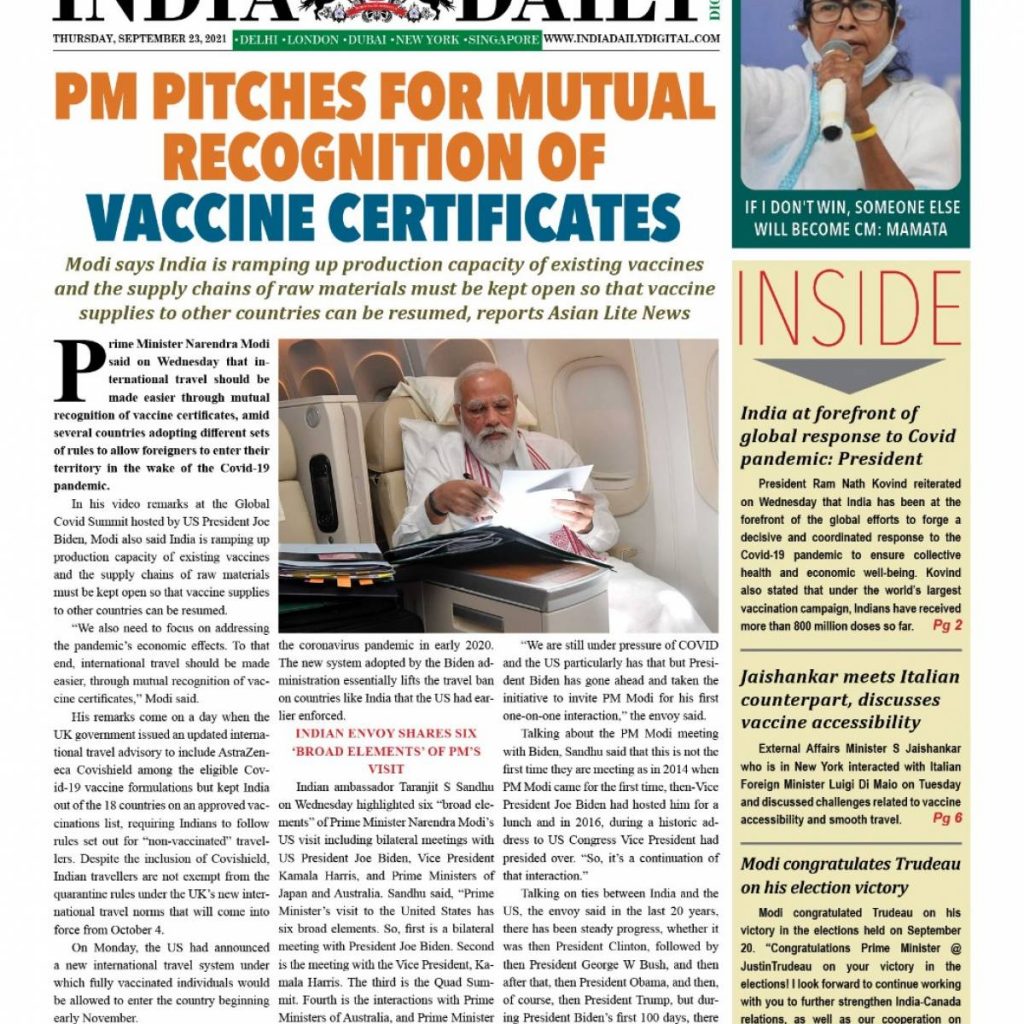
“You will recall that there have been 3 direct phone calls between 2 of them, there are 2 major summits,” he said, adding that “We have had a lot of interactions, visits by cabinet ministers from the US and also our external affairs minister, and the foreign secretary came here. So, the intensity of interaction has increased as also the content.”
He said Quad is a grouping of four like-minded countries (India, US, Japan, and Australia) which have come together to focus on international issues and problems.
“The first concrete example of COVID cooperation was the vaccines. So, it’s US technology, Japanese finance, Australian lift power, and India’s production capacity, and they are together, we are going to manufacture 1 billion doses in India, and that is very much part and parcel of the statement which Quad has come out,” the envoy said.
The envoy also pointed out the issue of technology and said, “On the second side, there is the issue of technology and emerging technologies, again, in this, all the four countries have strengths, and they are coming together. The third is the issue of the environment in that climate change.”
“You are aware India has one of the largest renewable energy programmes, and solar is an important part of that, and battery technology is important again. And here to all the four countries are coming together in their commitment. At this summit, they will be some other areas like infrastructure like semiconductors, etc, in which they will be for the movement. So all in all, it will also provide an opportunity to discuss many issues, including global challenges,” he added.
Earlier in the day, Prime Minister Narendra Modi attended the Global COVID-19 Summit hosted by US President Joe Biden. He, who began his 4-day visit today, will address the UN General Assembly and attend the Quad Summit as well as hold a bilateral meet with Biden at the White House.
ALSO READ-Citing wastage, Russia urges India to lift ban on vaccine export
READ MORE-Indians worried over UK’s new vaccine-linked travel curbs

